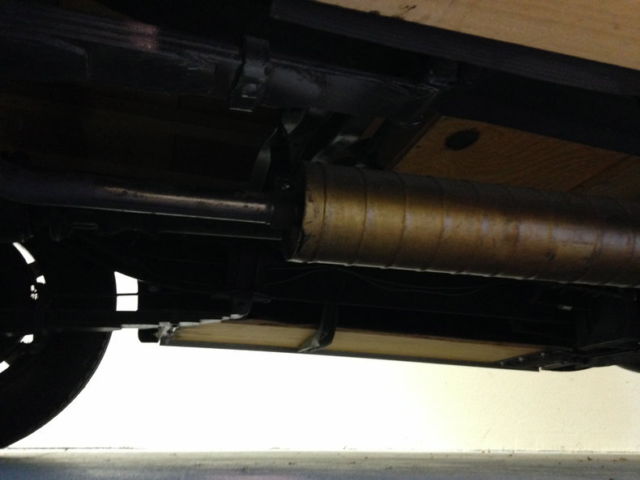1929 Oldsmobile Cantrell-Bodied Suburban
- Price:
- Location: Colorado Springs, Colorado, United States
- Condition: Used
- Make: Oldsmobile
- Model: Other
- Doors: 5
- Year: 1929
- Mileage: 14,568
- Color: Black
- Interior color: Brown
- Vehicle Title: Clear
1929 Oldsmobile Other Description
Classic Auto Sales LTD. | eBay Template- Year: 1929
- Mileage: 14568
- Primary color:
- Transmission type:
- Engine:
1929 Oldsmobile Cantrell-Bodied Suburban
This station wagon is the only known J.T. Cantrell & Company bodied 1929 Oldsmobile woody wagon ever built and has received a complete restoration. Excellent condition top to bottom. Runs and drives, all features work. 197ci Inline 6 cylinder engine, 61hp. Floor shifted 3 speed sliding gear manual transmission. 18" wood-spoke wheels with white wall tires in excellent condition. Guide brand fog lamps. Bright chrome bumpers, lamps, radiator shell. Complete restoration was performed on an already solid vehicle. No rust, no rot. Beautiful historic vehicle.
A background on J.T. Cantrell & Company (1905-1958)
Joseph Theodore Cantrell established his company in 1905, primarily repairing buggies, carriages, and wagons. By 1913 his brother Albert had joined the business, now know as J.T. Cantrell and Brother, with Joseph supervising the design and construction of all Cantrell wood bodies and Albert handling the company's accounting and business activities.
Their first foray into wood bodies for automobiles began with Henry Ford's Model T car and TT truck chassis. As their "Depot Wagons" became more popular they began building "Estate cars" for wealthy easterners. Most of the Cabtrell wood bodies were built on Ford and Dodge chassis, with special customer orders for some based on Buick, Cadillac, Chrysler, Essex, Franklin, Hudson, Packard, Pierce-Arrow, Studebaker, and even Rolls-Royce chassis.
Many of the "Estate Cars" featured unusual color combinations and exotic woods. Common woods used in construction included white and yellow birch, cottonwood, rock maple, red gum, white ash, pine, and mahogany. The high quality of Cantrell's bodies was not only recognized in the United States but in many foreign countries as well. The Duke of Windsor was one well known customer. Cantrell Suburbans, the company's preferred name for their wood wagon bodies, could be seen on the roads of France, England, Ireland, Russia, Sweden, and the Hawaiian Islands.
During WWII Cantrell became a major supplier of stretched troop transport wagons for both the military and civil defense duties. These were typically 4 or 6 door, 11 to 13 passenger station wagons, painted the standard military drab green. Cantrell profited greatly during the immediate post-war demand for new cars by purchasing large numbers of pre-war cars, removing the existing bodies behind the a-pillar, and substituting a new wooden "Suburban" body in its place. Most of these converted "used to new" wagons were built on Chevrolet and Dodge passenger car and light truck chassis.
Detroit's first passenger car based all steel station wagons appeared in 1949 and their immediate acceptance and popularity with the buying public marked the beginning of the end for J.T. Cantrell & Company. Between 1949 and 1958 Cantrell concentrated on body prduction for 1/2 to 1 ton truck chassis for Chevrolet, Dodge, Ford, GMC, and Studebaker. Unfortunately, these orders were too few and far between and Cantrell ceased production in September 1958.
- 3874 Mallow Rd.,
Colorado Springs, CO, 80907, US - (719) 660-6624
- mike@casltd.net
- http://www.casltd.net/
- View our other auctions
- Email to friend
 1929 Oldsmobile 6 Sedan
1929 Oldsmobile 6 Sedan
Mileage: 44000
 1929 Oldsmobile F29 4 DR Sedan
1929 Oldsmobile F29 4 DR Sedan
Mileage: 50,000
 1929 OLDSMOBILE f 29 TWO DOORS. COLECTIBLE
1929 OLDSMOBILE f 29 TWO DOORS. COLECTIBLE
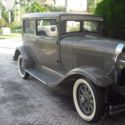 1929 Oldsmobile F29 Two Doors Collectible Classic Car
1929 Oldsmobile F29 Two Doors Collectible Classic Car
Mileage: 12,000
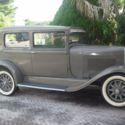 1929 Oldsmobile Two Doors Collectible Classic Car
1929 Oldsmobile Two Doors Collectible Classic Car
Mileage: 3,600
 1929 Oldsmobile F29 rumble seat coupe antique car muscle car classic car
1929 Oldsmobile F29 rumble seat coupe antique car muscle car classic car
Mileage: 17,900
 1929 Oldsmobile F29 61555 Miles Green Coupe 197ci I6 Manual
1929 Oldsmobile F29 61555 Miles Green Coupe 197ci I6 Manual
Mileage: 61555
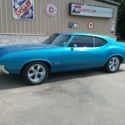 1972 Oldsmobile Cutlass 442 Tribute 14063 Miles BLUE Coupe 350 Oldsmobile V8 700
1972 Oldsmobile Cutlass 442 Tribute 14063 Miles BLUE Coupe 350 Oldsmobile V8 700
Mileage: 14063
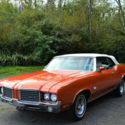 1972 Oldsmobile Cutlass Convertible Great Driver, Formally Oldsmobile Museum
1972 Oldsmobile Cutlass Convertible Great Driver, Formally Oldsmobile Museum
Mileage: 16,617
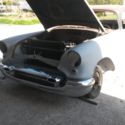 1956 Oldsmobile and 1955 Oldsmobile 4 door hardtops project cars customs
1956 Oldsmobile and 1955 Oldsmobile 4 door hardtops project cars customs
Mileage: 9,999,999



